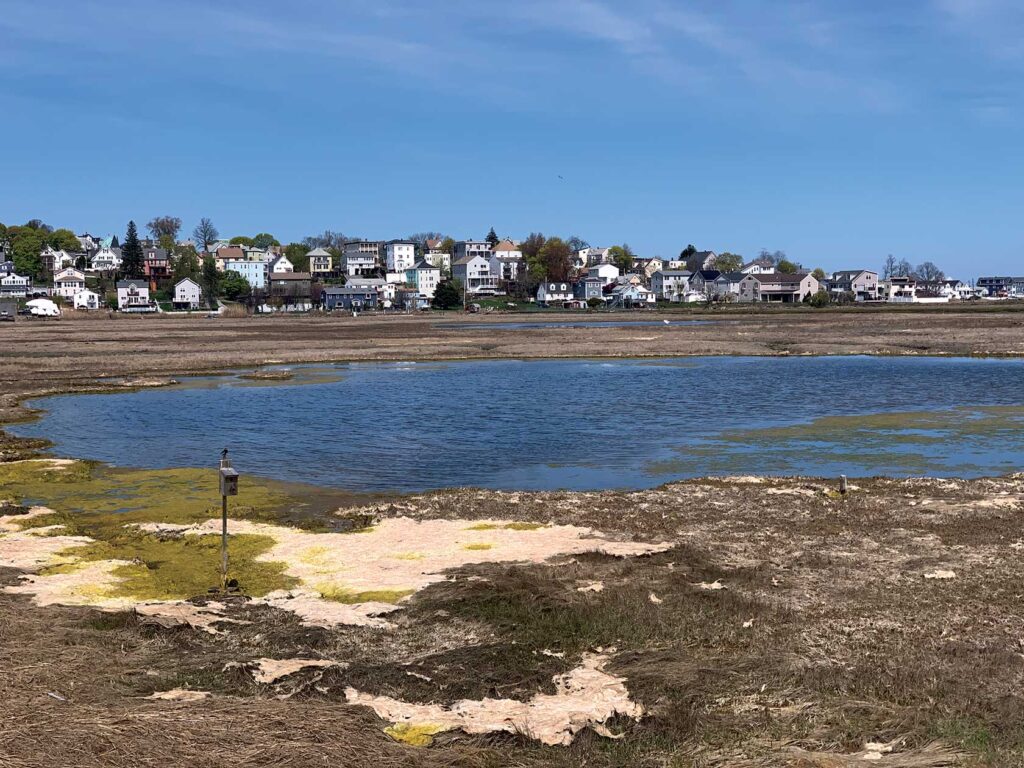
A bill pending in the Massachusetts legislature that would establish funding to address climate change also aims to amplify the voices of community organizations.
The bill would create a state-supported climate and community resilience fund. With funds generated by a fee paid on property taxes, an independent board mostly composed of representatives of community-based organizations would oversee implementation.
The legislation first found its roots in 2018, said Steve Long, director of policy and partnerships for the Nature Conservancy, which has led the charge on the initiative, when a faction of individuals pushing for funding to address the causes of climate change joined with individuals pushing for funding to address its impacts.
Long said what started as an effort to unify the voices of those two factions and avoid competing for the same dollars then morphed as they realized the need to include the voices of people most impacted by climate change.
“We started realizing that it was very important to have community voices at the table,” Long said, “to make sure that not only the source of revenue … but on what and how that revenue was being spent, would really be centered on the people who are being impacted first and worst by climate change.”
Jonathan Guzman, external affairs manager at Groundwork Lawrence, one of the community-based organizations that worked on the legislation, said that a focus on the voices of people experiencing the impacts is a mindset across his organization.
“Community voice matters and [it’s important to have] those with the lived experience or that are doing the groundwork right at the local levels be part of these decision-making tables, that they’re able to assess and bring the expertise into these conversations in order to ensure that these funds will support the communities,” he said.
The bill, currently before a committee, would create an 11-member board. Seven members would be representatives from community-based organizations, bringing expertise in environmental justice, as well as racial justice, food security, housing issues and workers’ rights.
Two of the remaining four members would be nominated by the state secretary of energy and environmental affairs, and the other two would be nominated by the House speaker and Senate president.
Guzman said the structure of the fund and its board would help maintain input in the bill’s continued implementation.
“This really pushes on that personal note of how we intentionally create these spaces, but then we don’t focus on who is sitting on that space, who is really doing the conversation and leading those types of pieces,” he said.
Their inclusion in this structure would allow, for example, a representative from Groundwork Lawrence to communicate needs already identified by the organization when it comes to standing issues around heat, drought and flooding.
Kristine Acevedo, a Dorchester resident of almost 20 years, got involved with developing the bill to address on-the-ground issues she’s experienced with heat.
Acevedo said she has to find places away from her apartment to spend summer afternoons, because her home can get to be about 85 degrees, despite a fan and blackout curtains.
“There are no trees or anything that provides any kind of shade, which creates a problem because of the fact that without trees providing any shade or cooling off anything in the area, certain areas in the city are a heat island,” she said.
Acevedo hopes that, if the bill is passed and the fund is established, the community input would help address issues like those heat islands and lead to the planting of more trees in the area.
For state Sen. Sal DiDomenico, who presented the bill in the Senate, the fund represents an opportunity to tackle long-standing issues, which have been tough to address so far due to a lack of resources, in some of the environmental justice (EJ) communities he represents in Cambridge, Charlestown, Chelsea and Everett.
“I represent a couple of EJ communities where there’s a lot going on on the resiliency side, and areas where they’ve been neglected over time,” DiDomenico said. “Now, because of that, there are some issues that have to be addressed. Obviously, the amount of resources that have to be devoted to this kind of initiative is very cost-prohibitive for our communities to address.”
As the climate and community fund bill progresses through the legislature, it does so at the same time as the Polluters Pay bill, which would make the largest-polluting companies in the state pay into a fund to address climate change, and the Housing and Environment Revenue Opportunities (HERO) Act, which would increase the transfer tax on property sales to generate funding for climate and housing initiatives.
Long said that as those bills move forward in competition, a final piece of legislation could form as a compromise between some of those efforts — but aside from a few conversations, no progress has been made in combining them.
The climate and community fund bill was referred to the Joint Committee on Environment and Natural Resources, which held a hearing in May. Long, of the Nature Conservancy, said he doesn’t expect the bill to pass this session, but hopes it will get out of committee and maybe be approved by one chamber.
DiDomenico said he thinks this is a bill that can’t wait several sessions to pass.
“These communities don’t have time to wait two, four, six years,” he said. “The impacts are real. They’re affecting their family and their health right now. We have to try to show people that this is important, and it’s not one of those bills that can keep waiting several sessions down the road. That’s our job to do that and try to convince them to move a little faster than the normal schedule.”






